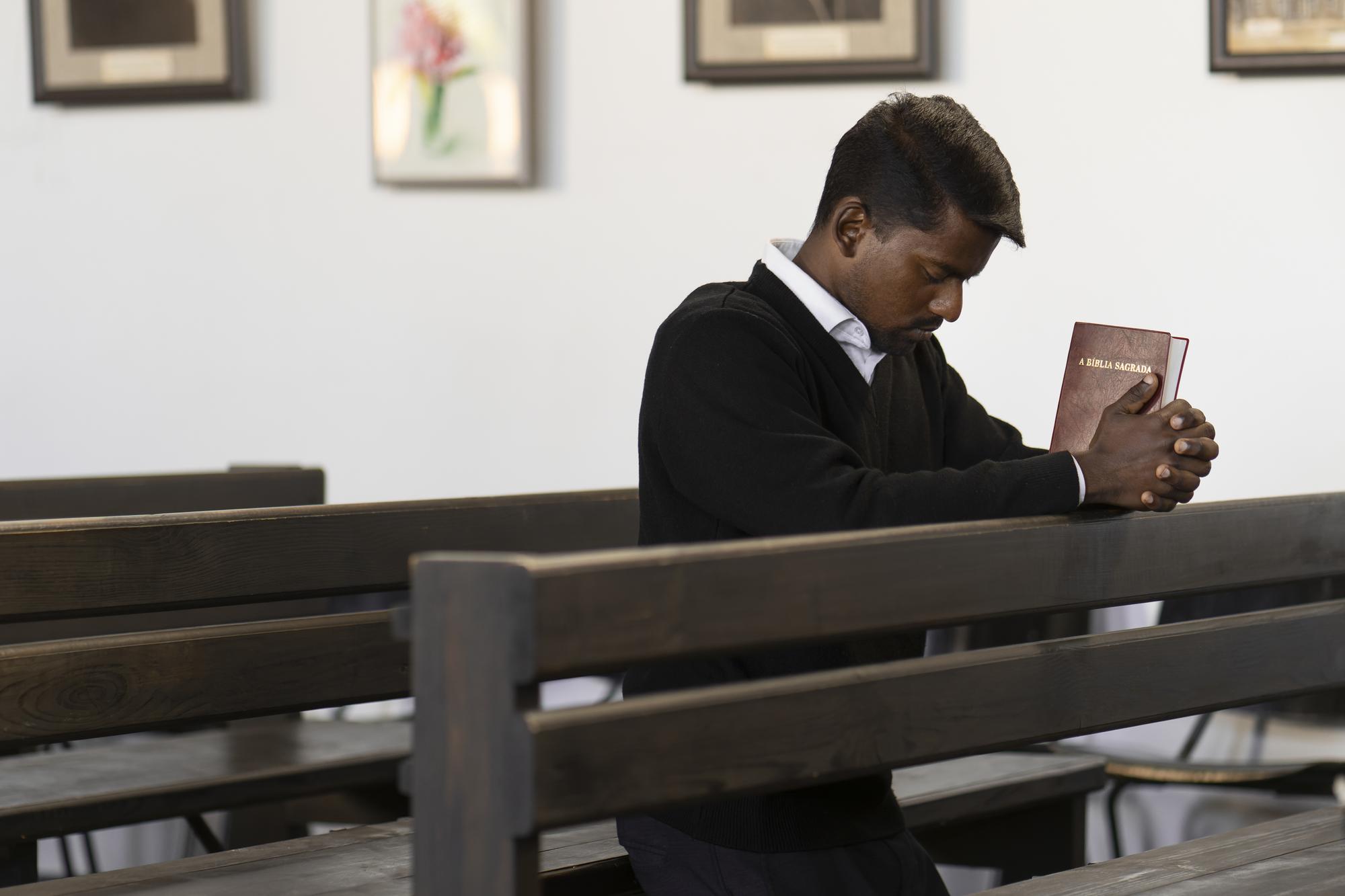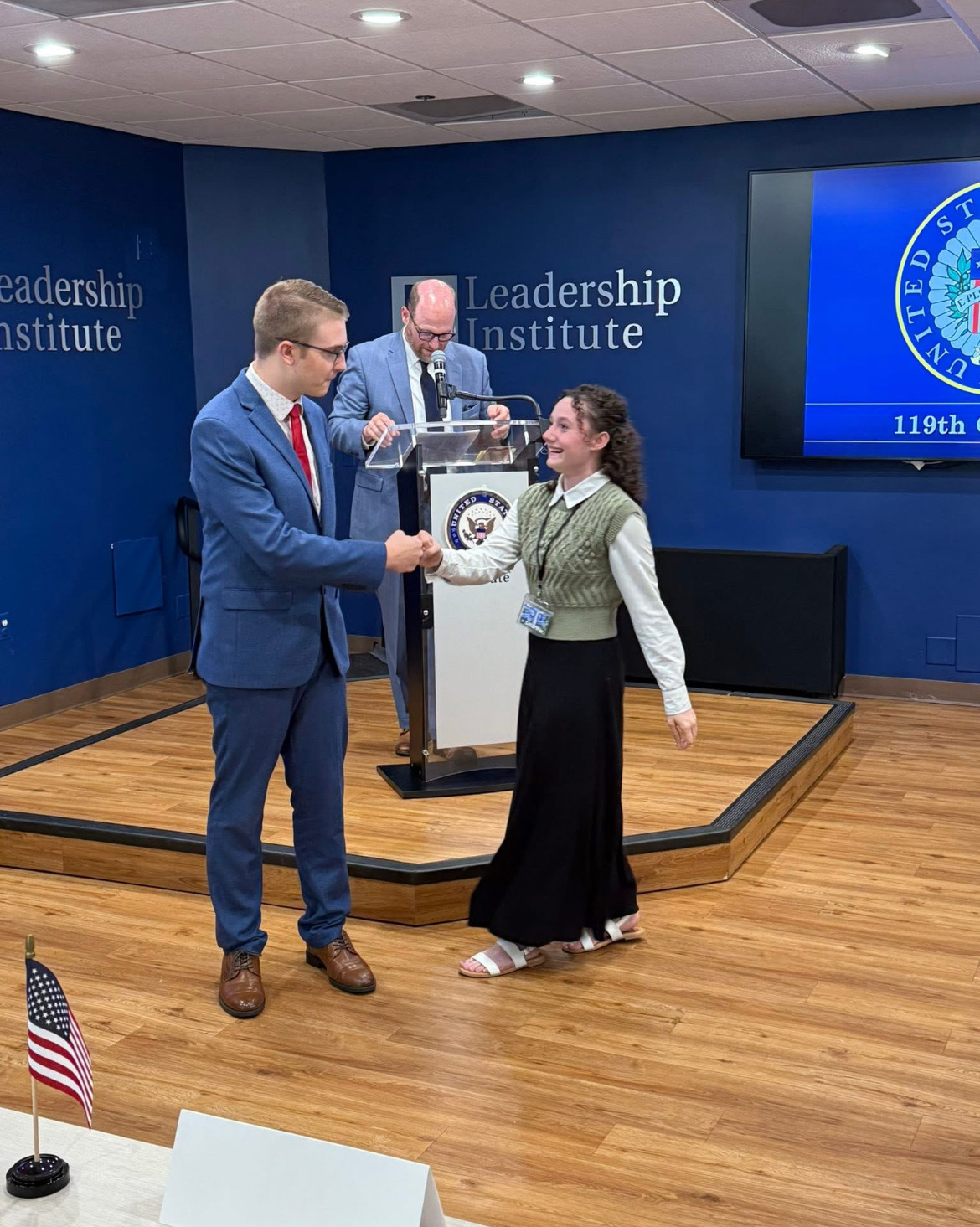Why Do You Run When I Am Crying
We can quickly become so busy working for the Lord that we forget the Lord of the work.

Have we overlooked the Lord of the work in our zeal for doing the Lord's work? Remembering that ministry is not just about tasks and responsibilities but also about showing genuine care and empathy for those in need is crucial.
Being in ministry can sometimes create a blind spot, making us focus more on the tasks than the people we serve. It's important to remember the words of a teacher I once ministered with, who prayed, 'Today, let me be the hands and feet of Jesus.
In Luke 10:38-42, Martha and Mary are hosting Jesus and the entourage of people who had begun following Him. The story indicates that Martha was hurrying and stressing out over the food preparations and hosting responsibilities while Mary was sitting at the feet of Jesus, listening to Him. Martha finally gets frustrated at Mary's insolence. She goes over to Jesus and rebukes Mary for doing nothing but just sitting around while she has to do all the work. Martha tells Jesus to tell her to get up and help.
Jesus' response was not what Martha expected. He tells her that she is anxious and troubled by too many things. He tells Martha that something is lacking in her busyness, and Mary has made a better choice, a decision that will make a difference.
In our ministries, we can become distracted by the work of the ministry. The responsibilities are endless. The meetings and expectations in serving the Lord can become a substitute for genuine worship of the Lord. How often do we convince ourselves that we are doing God a favor by being occupied with the hectic responsibilities of the ministry? In doing so, we frequently miss God-ordained opportunities to be the hands and feet of Jesus to those He sovereignly designed to cross our paths.
The names in the following challenge are fictitious, but the truths of the situations are brutally honest.
If you will, picture the almost frantic atmosphere of a large metropolitan hospital. Doctors and nurses move methodically through the hallways like pre-programmed robots tending their duties. The solemnness of the walls, lined with charts, tables with computers, and medical machines beeping rhythmically, seems only broken by the occasional scent of fresh flowers awaiting delivery to one of the rooms. Inside room after room lie patients waiting for medical treatment or the results from a diagnostic test. They are anticipating a friend or relative to walk through the door to say, I care.
Inside one of those rooms lies Misty O'Neil. Misty is a Christian. She is a member of one of our fundamental churches, which prides itself on having a firm handle on Bible doctrine. The sign in front of the church reads: Distinctively Different by God's Design. Everyone says they are the fastest-growing church in the area. Their Pastor is a graduate of the most prestigious seminary. He reads all the correct commentaries and was written about in a Christian magazine as an authority on church growth and planning. There are seven deacons in Misty's church. All of them are successful in their fields and active in fellowship and the church's leadership.
When Misty first got sick, she was the object of great attention at the church. There were special prayer meetings for her on Sunday nights, her name was mentioned in the prayer bulletin weekly, and the church prayer chain kept close surveillance on her condition. But Misty committed the cardinal sin—she didn't get well, and she didn't die. She just suffered.
Soon, the church, not sure how to deal with her lingering illness, began to move on to other things: deacon Brown's heart condition and Mrs. Anthony's slipped disc. The church leaders' daily visits became weekly, and the Lady's Bible Study, which had taken on the project of sending food to the family, grew weary of the burdensome task. One lady shared, "Enough is enough. Nobody wants to take food to the same family more than once or twice."
As time passed, Misty's illness became a long-term challenge, and the church's support waned. This situation highlights the need for the church to provide ongoing support to members facing prolonged difficulties rather than allowing them to become lost in the shuffle of pre-programmed Christianity.
Bill and Vickie James live on the same road as the O'Neils. Bill and Vickie have one child. The child was born with Down syndrome. He was quite a cause for prayer when the little boy was in the hospital; he was quite a cause for prayer when he first went home. But now little Andrew James is two years old, and nobody knows how to act or what to say. So, they say nothing. They don't know how to react to him either, so they walk around him in church to avoid contacting him or pretend to look the other way. Bill and Vickie had lots of encouragement that first month. But now the hurt goes on and on, and the work of raising a child with Down syndrome goes on, and they go alone.
Now, we can't be too hard on the church. They stay busy with the Lord's work. They have several choirs, a prominent Christian school, nine adult Bible classes, a bus that typically never runs, a budget that is always challenging, and a whole congregation full of people with needs. It takes a lot of time and money to run an active church. It seems natural that people like Misty, Andrew, and their families fade into the background after a while.
Then there's the former deacon, Ben Willis, whose wife left him after 25 years of marriage and filed for divorce. No one knows quite how to treat Ben. He had been the head of the building committee; he taught a Junior High Sunday school class for twelve years. Now, he sits alone in the back of the church while people nod at him occasionally as they pass; no one wants to get too close to Ben anymore. They don't want to hear about his problems. They don't want to get involved. Though no one says it, most believe his situation must have been his fault.
And there's Fred Beacon. He is getting up there in his years. He's almost 90 years old. He used to be a pillar of the church. But Fred has lost his steam. His memory is fading, his eyesight is poor, and he struggles to get his words out since he had a stroke. He is still loved, you understand, but from a distance. After all, who wants to fellowship with an elderly man who cannot remember what he said and cannot say what he means?

From the outside perspective, the church's success is evident, and it is desirous of being emulated. Pastors and Christian leaders from all over come to study their program. Everyone leaves impressed.
Everyone except the Mistys, Andrews, Bills, and Freds and the hundreds like them who walk the corridors of life, week after week, month after month, their souls and spirits aching for love.
There are those whose businesses, ministries, health, marriages, and families are failing. Sunday after Sunday, they sit, surrounded but alone. Part of a body that is supposed to hurt when any of its members hurts, but the rest seems to have become numb to pain, other people's pain. They long for someone to stop running long enough to listen to how badly they are hurting. They long for someone to put their arm around them and say, "I care, what can I do?"
Every church in America, beneath its active exterior, has these kinds of people within its walls. This does not consider the number of non-Christians we work with, live near, or are related to. It seems overwhelming. So, instead of honestly looking and listening, we run away.
Do you know what the Mistys, Andrews, Bens, and Freds are saying? They say, "I hear your theology; I know what the word agape (love) means in the original language. If that's what it means, why do you run when I am crying?
Why do you run when I'm crying?
Can't you see I'm in pain?
Why do you turn the other way
Instead of looking at me?
Why don't you stop all your preaching
that love is the only way,
and tenderly show me that you love me
day after day after day?
Why do you try to avoid me
instead of seeing me through?
Why do you run when I'm crying?
What would Jesus do?
Jesus would spend hours by Misty's bedside, letting her know He still cared. How do we know? He went out of His way to let a lame man sitting by a pool realize He cared. A man, like Misty, who had been paralyzed for 38 years at the pool of Bethesda, and no one cared enough to help him (John 5:5-8).
He would spend time with Bill, Vickie, and little Andrew James. How do we know? He stopped to tenderly touch a man who was born blind (John 9). He'd love old Fred, stuttering speech and all. How do we know? Jesus loved the ones that society cast out. He loved the lepers, and no one in Israel loved the lepers.
Jesus spent the bulk of His brief life on earth with the people the church excludes. He spent most of His waking hours with those who were blind, lame, or diseased. He communed with social outcasts and was crucified with convicted criminals. He gave attention to tax collectors and adulterers who sincerely desired to change. He spent time with those who were mentally wild or physically helpless. He went to where the poor people were, where the sick people were, where the dying people were, and where the mourning people were. Then He returned to Heaven and sent us in His place to do the same things.
It must break His heart when those He sent us to love, tears flowing down their faces, hearts breaking, are heard whispering as we flee, "Why do you run when I'm crying?"
Why do you run when I'm crying?
I desperately need you to care.
I desperately need to know for sure
That someone who loves me is there.
Why do you run when I'm crying?
And say the things that you say?
No, I may not look the way you look
But didn't God make me this way?
Why do you run when I'm crying?
I'm part of God's Body, too.
And though I may not be the same
Am I not as good as you?
Why do you run when I'm crying?
I'd stop you if only I could
I'd say, "Please don't run away!"
I don't think Jesus would.
Jude 22 (KJV) says, "And of some having compassion making a difference." Most of us, as believers involved in ministry, whether church or school, have a deep desire to make a difference in the lives of those around us. How can we do that when actively seeking to avoid and dismiss those in need?
This verse indicates it only takes some people to make a difference. It does not require everyone; it only requires some to initiate change. The some are those who are spiritual, who understand that God desires to work through them. Ephesians 2:10 calls those saved by grace, "His workmanship created in Christ Jesus for good works." These sacrificial believers make themselves available to God. Their schedules and priorities are secondary to those God has called them to serve. 2 Corinthians 8:5 describes the some as those who "…gave themselves first to the Lord and then by the will of God to us."
The some have a great possession, compassion. Compassion means to enter into the concerns or misfortune of others. Psalm 86:15 describes God as being full of compassion. Like God, a compassionate person is forgiving. "Yet he (God), being compassionate, atoned for their iniquity and did not destroy them; he restrained his anger often and did not stir up all his wrath" (Psalm 78:38). Atonement means that Jesus's death on the cross reconciles humanity with God, offering forgiveness and a restored relationship. Peter identifies the requirements for genuine fellowship: "…have unity of mind, compassion, brotherly love, a tender heart, and a humble mind" (1 Peter 3:8).
The final thought of Jude 22 is that the some had compassion and were doing something with it. The tense of the verb, making, is in the present active. That indicates that an immediate change is taking place. Jesus looked on the multitudes, with compassion. Through His compassionate perspective, He saw that they were like shepherd-less sheep (Matthew 9:36). His immediate action was to choose disciples to help guide and meet the needs of the multitude (Matthew 10:6). Another grammatical clue in this verse is that it is in the active tense. That means that it is continual or ongoing. When a Christian has compassion, the change is immediate and lasting.

It is very easy to get so enamored in doing the work of the Lord that we forget the Lord of the work. The challenge is two-fold.
- Become sensitive to the needs of those around us.
John Maxwell's father used to encourage him to be an impactful leader; he must "walk slowly through the crowd." Maxwell says, "You develop credibility with people when you connect with them and show that you genuinely care and want to help them." To truly connect with people, you have to value them, learn about them, and then adapt to who they are. Do not expect people to change themselves to follow you. You must change yourself to invite them in." It involves genuinely attempting to understand others.
- Ask the Lord to help you meet the needs of those around you.
It is a common fallacy to think that meeting another's needs is always physical, financial, or material. Most of us do not have the resources to alleviate the hardships of those in dire need. However, our God does. He can provide in marvelous and miraculous ways. Some needs can be resolved with a simple act of kindness, a word of encouragement, and consistent prayer.
When we do these things, we expand our ministry for Christ. He will emerge from all around us, men and women who need to be loved and who need someone to understand their hurts. When we do that, life will take on a whole new meaning.
Final thoughts:
It is a privilege to be able to serve God in the ministry. We must be careful not to allow the responsibilities in the ministry to substitute for a relationship with the Lord of the ministry. It's easy to do. In Matthew 7:21-23, Jesus made a sobering analysis of those who claim to be dedicated to ministry. Jesus said many will say: we have prophesied in Your name, cast out demons in Your name, and do mighty works in Your name. These are not insignificant lists of ministry-related deeds. But Jesus made it clear when He said, "I will declare to them, I never knew you, depart from me, you workers of lawlessness." The emphasis of these verses makes it clear that we can fall into the trap of doing the work of the Lord and never really knowing the Lord of the work.
A word to the wise is always sufficient!

Eddie Riley
Eddie Riley is the ADMINISTRATOR, SENIOR BIBLE Instructor for Cross Lanes Christian School, and has served in this position since 2013. He has faithfully ministered in Christian Education for over 40 years at schools in NC, AZ, FL, VA, NJ, and WV. Eddie holds a BA in Bible from Bob Jones University, and M.Ed. from West Coast Baptist College















